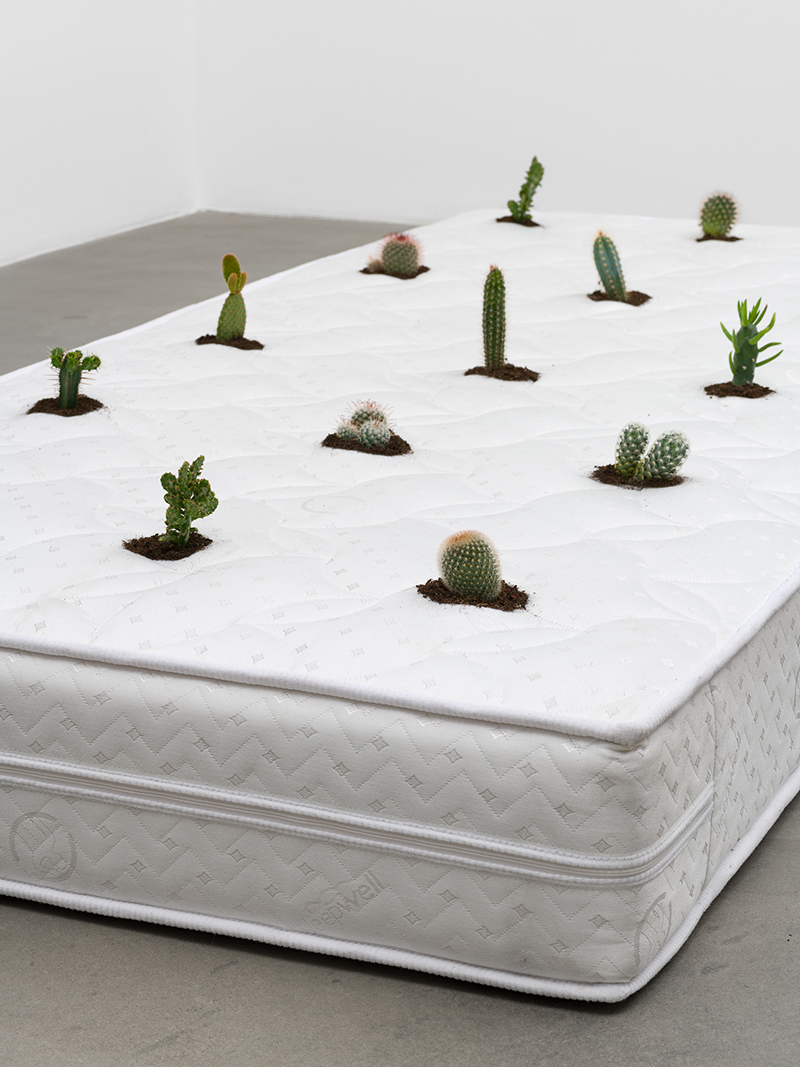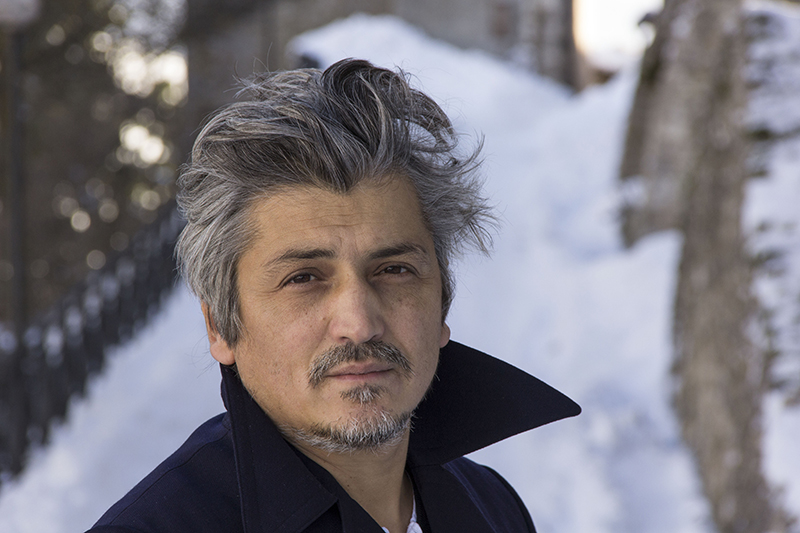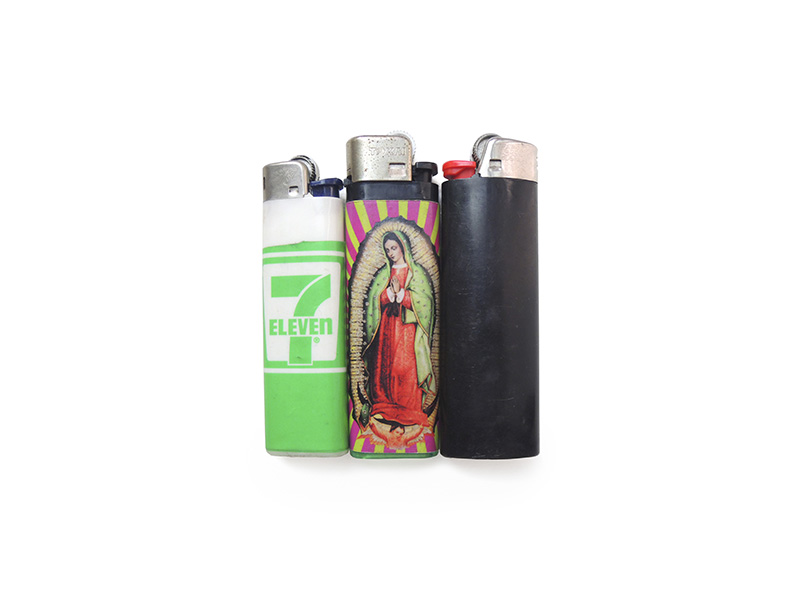Sislej Xhafa forgoes the customary interview locale inside Blain|Southern, the gallery that showcases his current exhibition ‘shadow of curls’ (and happens to be quiet and warm), for a damp edge of the busy parking lot, where he can smoke. Our evening autumn conversation is sparked by the flick of his lighter and kindled by the gentle timbre of his voice. But as we begin our discussion, I start to understand why he has brought me here: the artist relishes the metabolism of everyday life far more than the dormancy of the white cube, and the chorus of passing cars and hurried pedestrians provides an appropriate soundtrack to our dialogue.
Xhafa’s understated charisma refutes the punchy attitude of his artwork, though he is clear to distinguish his own energy from the life of his work. In 1997, before his native country had a formal pavilion, the artist wandered around the gardens of the Venice Biennale kicking a football, dressed in an Albanian national jersey, presenting himself as the ‘Clandestine Pavilion’. Since then, he has proven to be a Biennale champion on any team, representing Albania in 2005 and the Republic of Kosovo in 2017. Berlin Art Link chatted with the artist on the occasion of his first exhibition in Berlin, in which he explores identity politics and socioeconomic issues. Xhafa’s conceptual works present and prod the underbelly of the everyday in humorous and ironic gestures that imply notions of migration and legality.
Jack Radley: You’re known for using art to ask questions. What are the most pressing questions you’ve been considering lately?
Sislej Xhafa: I, as an artist, don’t know what “artist” means, as a word. But I know one thing: that I’m a sensitive human being, and I try to question the things that matter to everyday life, to manifest and materialize something magical. Some new kind of different experience. I do believe that art is the only remaining democracy, which gives the space required for a solitary journey towards peace. And that magic—something that we should never give away—that kind of freedom is getting hijacked by all kinds of formal authority.
I question things that matter to us. So what matters to us? Everyday life, matters of social injustice, forced illegality, geographical relations, immigration, in any kind of form. However, I am not an expert in any field: I am not a good painter, I am not a good sculptor, I am not a good…anything. But I do raise questions.
JR: This “magic” that you talk about: do you think as the artist you create the magic or discover the magic?
SX: What I try to bring to the space is the unconscious. It becomes something magic when people can bring that experience to a different level. But it’s not up to me to decide if that unique experience with a unique sensibility is taken further or left as it is. But that is exactly what I believe the power of the work, not me, can give, can transcend.
JR: So, you talk about how the work is for the viewer, in this sense, and it’s open to a lot of interpretation. To what extent does this work come from your identity as someone from Kosovo, and to what extent does it speak to other identities?
SX: I come from Kosovo. And it’s very sacred to me: where I’m born, where I lived. But today, I’m from Berlin. Tomorrow, I’ll be from New York. I mutate myself. And the beauty of time is that it can determine who we are, not what we possess. It is about the quality of sharing. That is really important.
So your question about identity is a big question. Do we identify ourselves with our behavior, or do we identify with geographical relations because we believe in that notion of the state from the seventeenth century? Or maybe religion, all five thousand years, is hijacking all qualities of humans from the last hundred thousand years. So it’s a big question. To me, the most challenging thing is your personal journey towards questioning yourself with regard to the time in which you live. And, unconsciously, your work invents its own time. But it’s not me that can determine that, it is only time.
JR: Today, you’re from Berlin. How do you approach showing work in Berlin, versus say in Venice or New York?
SX: When I say that symbolically I come from Berlin, it means philosophically that I practice the philosophy of the traitor. And I love that. Because as a human being, we betray ourselves constantly: we live in and we share the same hypocrisy as human beings. And I really love when imams will get drunk and say prayers, or when priests will get married. It is natural, I think.
We do not live in a mechanical way of thinking, but we have something really, deeply spiritual in terms of how to deal with reality. And when I think about the philosophy of the traitor, I think about how much it’s important for us to keep that as sacred, and mutate something more magic from errors. The same mistakes that we make again, and again, and again. And that, not the perfection, is the beauty of humanity.
There are two times when human beings achieve perfection: when a child is born and when a person dies. These are the two perfect physical states of a soul. Everything else is the beauty of contradictions in which we live, and to highlight that magic in art, with our own sensibility, is one of the most gifted things that we possess. That is something really special.

Sislej Xhafa: ‘dont touch me’, 2017 // . Photo by Trevor Good // Courtesy the artist and Blain Southern
JR: Yeah, I really see that in ‘dont touch me’, your work with the olive tree. It’s suspended between life/nature and death inside. It even claims “do not touch me” so as to resist intervention.
SX: Bravo. It’s very important to me, this piece. It’s about life, it’s about the roots, it’s about beauty, it’s about sensibility, fragility. It’s about everything – what do we share? Do we possess this or does it belong to us? It’s the beauty of life and the world, and we should share that beauty rather than possess it.
JR: When do you decide to use objects from the everyday, or readymades, like with the lighters in ‘shouting in the wind’, and when do you decide to intervene with the objects, like with the cacti in the mattress in ‘stinging pocket’?
SX: Duchamp played chess all his life, using that as a safe game. My unsafe streets are my game.

Sislej Xhafa: ‘stinging pocket’, 2017 // Photo Trevor Good // Courtesy the artist and Blain Southern
JR: Can you talk about the research-based nature of your practice?
SX: Usually, I don’t think too much, because I realize the more I think the less I do. I live in one of the most special cities in the world, New York. And New York is so magical in so many dimensions, so many layers. It’s a tough city. It’s a city in which I believe millions of people wake up in the morning and survive through resistance. Living there for twenty years now, I feel ordinary, like hardworking people who make a hard living. I chose New York because it is a city in which I believe you can learn so much. Not to make artworks but to learn through the process of everyday life.
I love the dynamic of cities because of the multiethnic society in them. I can’t call it multicultural because it’s a totally different definition. Multiethnicity means people from all around the world are bound by the laws that keep a city of the future sustainable.
So in regards to my practice, I don’t think about what I do, but I do raise questions. I can tell you one thing: if I ever find out the response, I will never do art again.

Sislej Xhafa: ‘desert in hole’, 2017 // Photo by Trevor Good // Courtesy the artist and Blain Southern
JR: You’ve talked a lot about the importance of learning and how you’re constantly learning through these questions. What do you hope people learn from seeing your exhibition, ‘shadow of curls’?
SX: I do not expect anything because this show doesn’t belong to me anymore. It belongs to the people. I truly believe in the power of the work, regardless of whether you like it, or dislike it, or are indifferent. Any form of art of that gives you space, as individuals, to experience with different layers, different dimensions, these experiences to me are very important. And, of course, that doesn’t belong to me. It belonged to me until one minute before opening, after that it’s not my show anymore. This is the spirit of my work. I don’t expect anything besides experience.
Exhibition Info
BLAIN|SOUTHERN
Sislej Xhafa: ‘Shadow of Curls’
Exhibition: Nov. 11 – Dec. 23, 2017
Potsdamer Straße 77-87, 10785 Berlin, click here for map






















